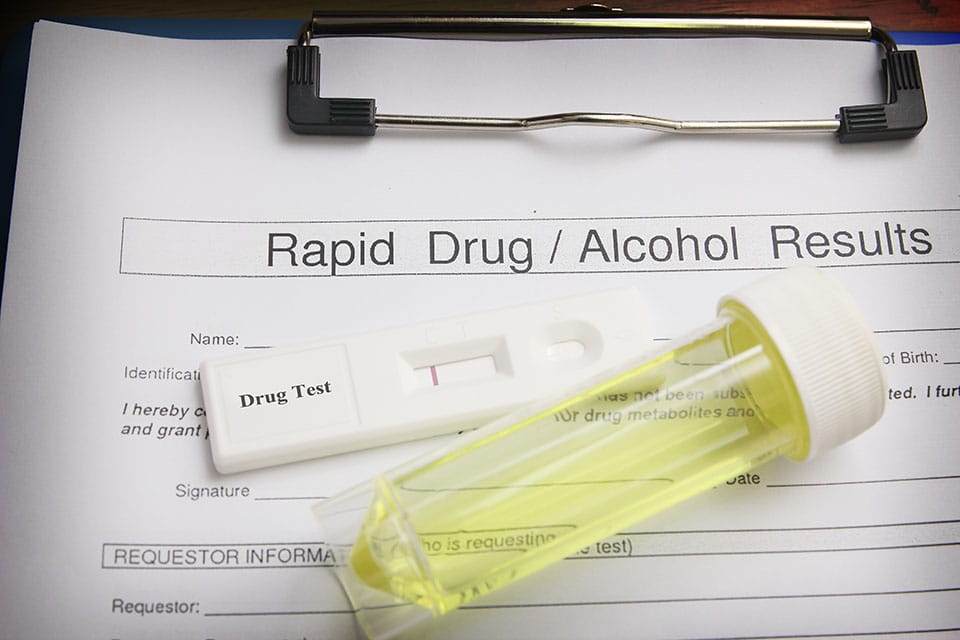Providing paid work with regular drug tests is effective in helping addicts overcome addiction, according to currently available evidence. Contrary to the stereotype of the addict who’s unable to hold down a job, the body of evidence on “therapeutic workplaces” shows that they help about four out of five addicts stay clean. The approach does require around three drug tests per week and would be difficult to implement large-scale, but it’s a new approach to addiction treatment that may become increasingly important.
What Is a Therapeutic Workplace?
The basic idea behind the therapeutic workplace approach is similar to another successful approach called voucher-based abstinence reinforcement therapy. The premise is that of operant conditioning—if you receive a reward for doing something, you’re more likely to do it again. Voucher-based reinforcement simply provides vouchers of escalating value to those able to provide clean drug tests. The therapeutic workplace approach can be thought of as an application of this strategy to full-time work. To be eligible for the therapeutic workplace, addicts have to be in methadone maintenance (for heroin or opiate addicts) or in a comprehensive rehab program. Those who are eligible are hired for positions and trained, generally for something like data entry. The only requirement is that participants submit at least three drug tests per week to show that they’re clean or at least are becoming cleaner. If they are, they’re allowed to work and receive a wage. If the drug test comes back positive (or levels are higher than previously), the individual is sent home. However, the approach is built on unlimited second chances, meaning you’re free to come back and try again the next day even if you’re sent home, no matter how many times you relapse. Those who remain clean for a predetermined length of time—or who perform well on the job—are rewarded with a cash bonus, and these are regular and ongoing for continued abstinence or good work. Originally, researchers were concerned that giving addicts cash bonuses would be too much temptation and would lead to relapse, but the evidence shows that this isn’t the case—those who received cash bonuses tended to stay clean longer than those who received just an hourly wage. Evidence for the Effectiveness The therapeutic workplace approach has produced several positive results in randomized controlled trials, working specifically with those addicted to cocaine or opiate addicts also taking a treatment like methadone or naltrexone. One study looked at 40 participants who were assigned at random to either the therapeutic workplace or usual care over three years. The results showed that attending the therapeutic workplace increased cocaine and opiate abstinence over the entire three years, with 54 percent in the therapeutic workplace remaining abstinent from cocaine compared to 28 percent of the control (treatment as usual) group and 60 percent remaining abstinent from opiates compared to 37 percent of controls. Other studies have compared the therapeutic workplace with simply working but without the financial incentives, and they have generally found that while around 50 percent of those working without financial incentives remain abstinent, 80 percent of those in the therapeutic workplace did so. In 2012, a review of the evidence found that the approach is highly effective for long-term abstinence. The reason for the success of the technique is the realistic way it approaches addiction: relapses are expected, but there are always immediate rewards for remaining sober. The theory—which is increasingly well-supported by evidence—says that when this situation is maintained, addicts will gradually move toward abstinence. Problems With Scaling The therapeutic workplace model of treatment looks very promising, but it hasn’t become a particularly widespread practice in the recovery community, largely due to the difficulty in implementing it. Businesses simply aren’t able to provide the intensive monitoring of participants that has been possible in the research conducted—giving each relevant employee three drug tests a week represents a lot of work in itself, before you consider the personnel needed to train, support and keep an eye on employees. Kenneth Silverman of the Johns Hopkins University School of Medicine created the approach along with his colleagues and is currently working with the American Substance Abuse Professionals to work out how to implement it across the country. The therapeutic workplace approach could revolutionize addiction treatment if Silverman is able to find a way to make it easier to implement, but arguably the most important lesson from the research is that providing opportunities for addicts and rewards for abstinence has been shown to be effective in fighting addiction. The stereotype of the addict unable to hold down a job is a damaging one, and in fact the research shows that when given the opportunity, large numbers of addicts (at least those trying to get clean) are able to succeed in the workplace and remain drug-free. People struggling with addiction have the power to surprise, but only if given the opportunity.



